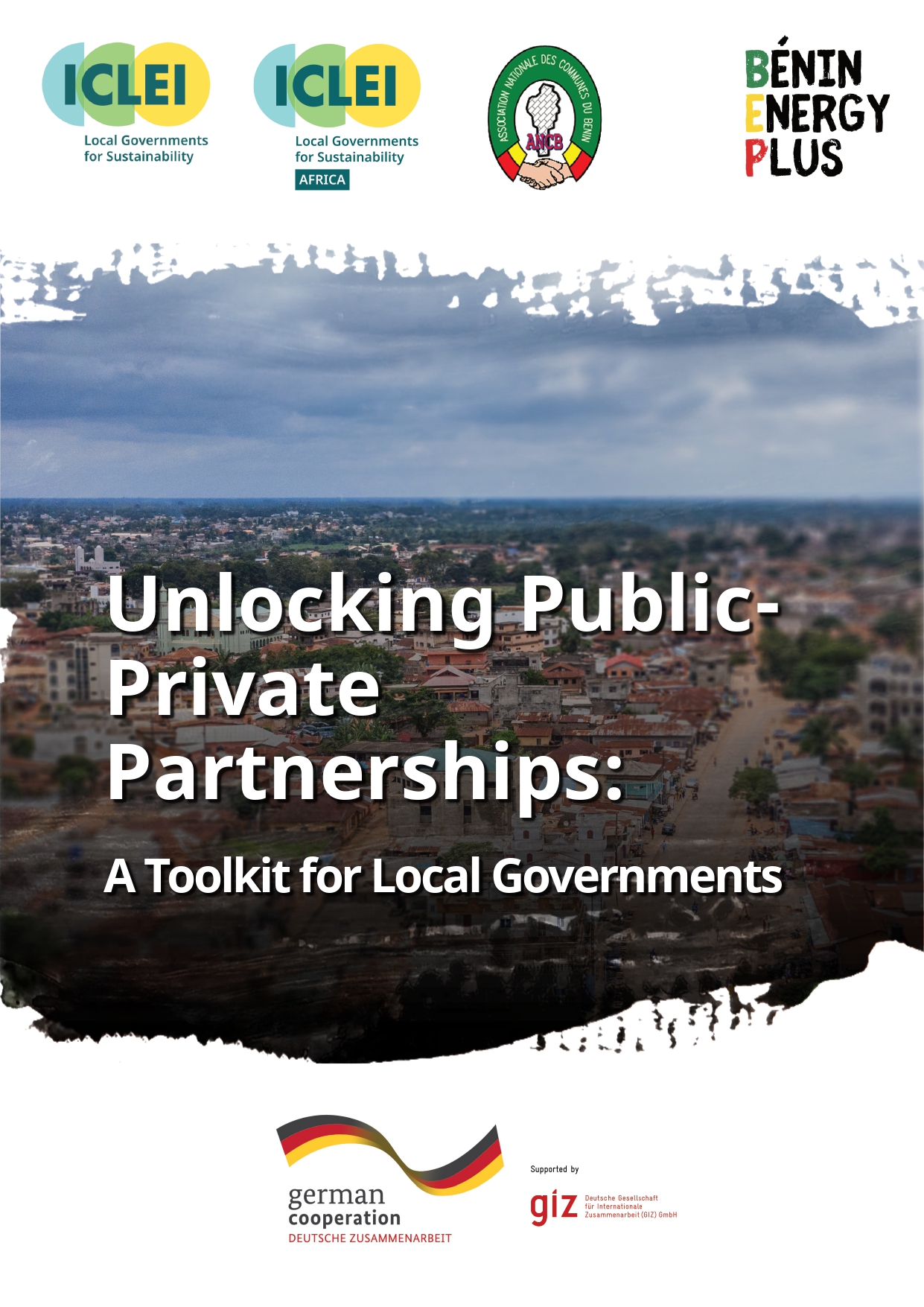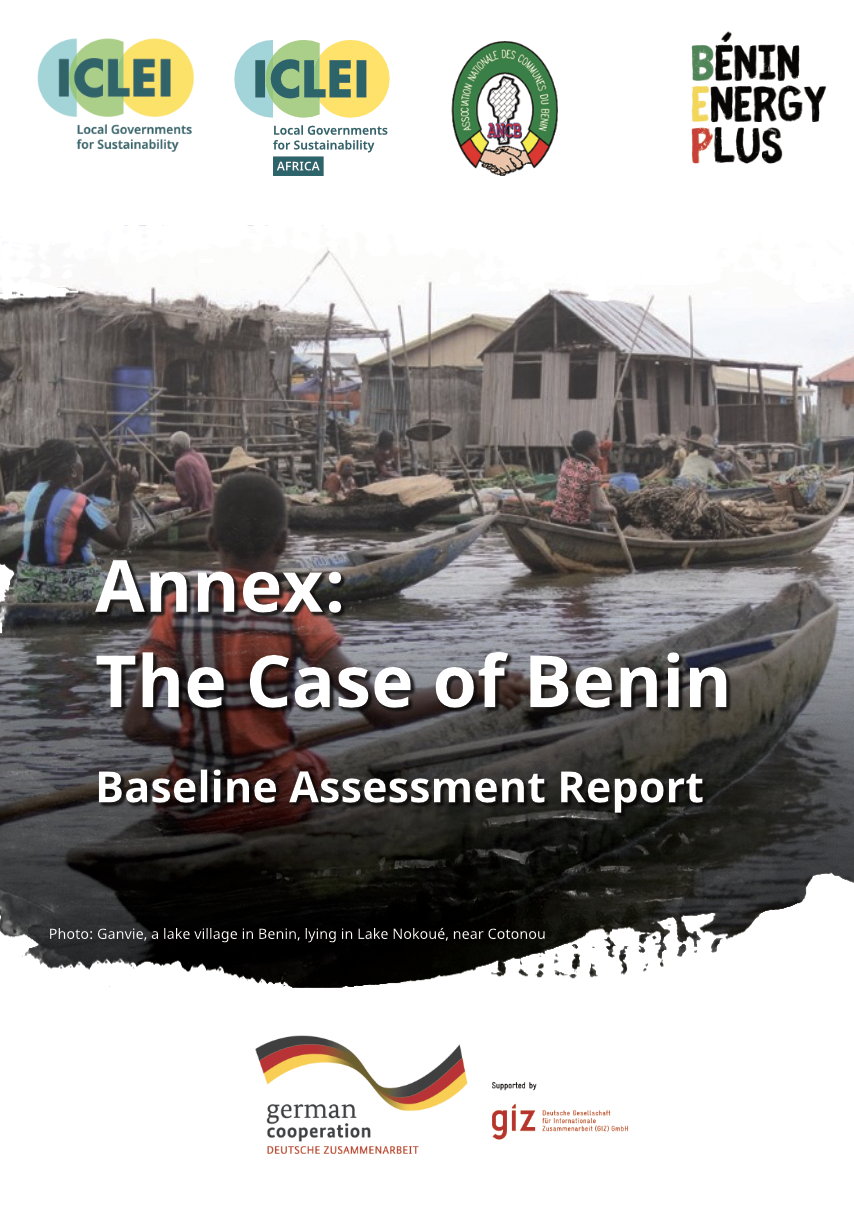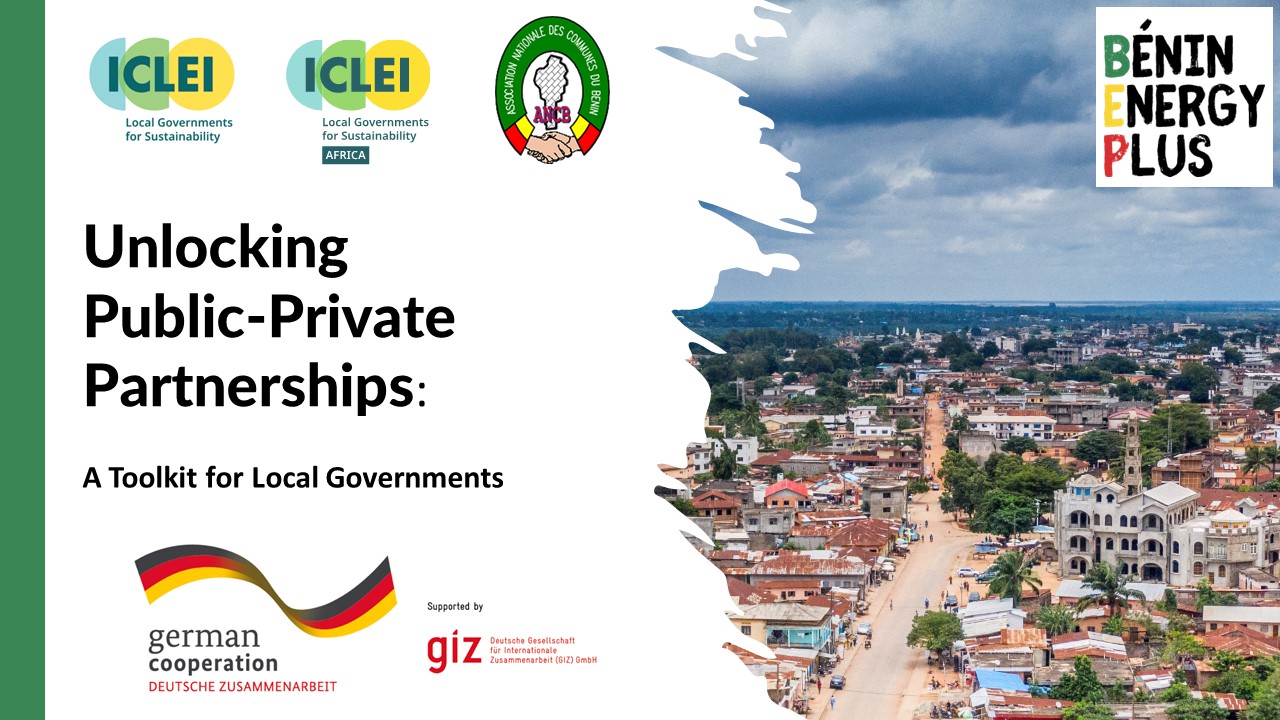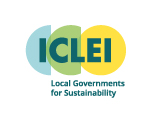Benin Energy – PPP Toolkit
The Benin Energy Plus project is delivered as a partnership between ICLEI – Local Governments for Sustainability and the Association Nationale des Communes du Bénin (ANCB). The project, originated through a TAP application, is part of the GIZ Green People’s Energy program, which aims to provide conditions for supplying regions in rural Africa with decentralized renewable energy, assisted by the involvement of citizens and the private sector.
Unlocking Public-Private Partnerships: A Toolkit for local governments
The Toolkit for local governments enables to develop public-private partnerships (PPPs) and use carbon financing as a potential implementation mechanism of solar photovoltaic (PV) projects. This collection of tools and resources are divided into building blocks to guide the user into the main stages of the project development cycle.
Building Block 1: PPP Fundamentals
Building Block 2: An Enabling Policy Landscape
Building Block 3: Ensuring Successful Partnerships
Building Block 4: Accessing Finance
Building Block 5: Partnerships for Solar Energy
A Training Module for Local Government Capacity Building
The Benin Energy Plus (BEP) project is supported by Deutsche Gesellschaft für Internationale Zusammenarbeit (GIZ) GmbH on behalf of the German Federal Ministry for Economic Cooperation and Development (BMZ). The ICLEI World Secretariat is responsible for project management and coordination.
Additional support was provided through the 100% Renewables Cities and Regions Roadmap project, implemented by ICLEI – Local Governments for Sustainability and funded by the International Climate Initiative (IKI), which is implemented by the Federal Ministry for Economic Affairs and Climate Action (BMWK) in close cooperation with the Federal Ministry for the Environment, Nature Conservation, Nuclear Safety and Consumer Protection (BMUV) and the Federal Foreign Office (AA).







